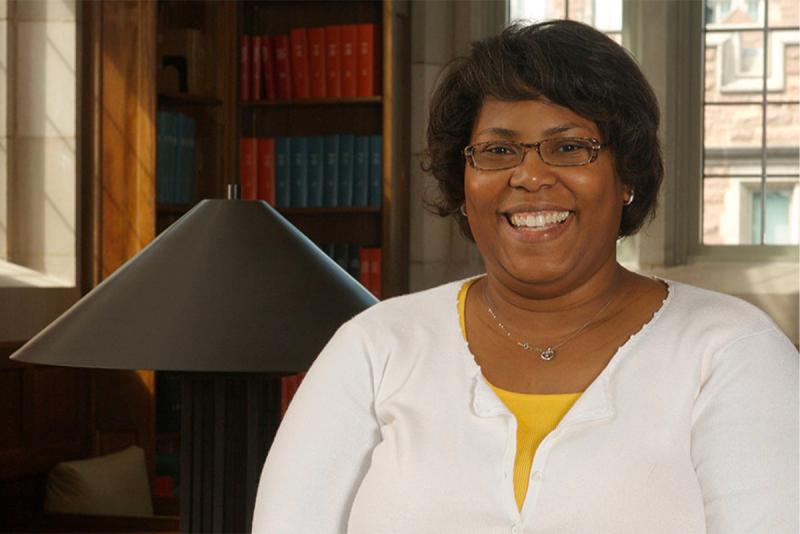Shaping the Future of Social Work
McCoy started her academic career as an undergraduate business major at Washington University in St. Louis, but she quickly realized business school wasn’t for her. She subsequently changed her major to African and African American studies and sociology, took a cross-listed social work/sociology course about poverty in America and “fell in love.” At the time, she recalls, she had never heard of social work and had no idea that the volunteer work she was doing, coupled with what she was learning in her social work and African and African American studies classes, would become the foundation for a career of more than 30 years.
That one course led to an MSW from the University of Pennsylvania with a concentration in criminal justice, followed by a Master of Jurisprudence from Loyola University Chicago School of Law. McCoy says she felt that the law degree would make her a better social worker. “A lot of the clients I was working with had contact with the legal system, and I felt inadequate in supporting them as they tried to navigate the system.”
McCoy went on to earn her PhD from the Washington University in St. Louis Brown School of Social Work. Currently, she is an associate professor and the Ruby Lee Piester Centennial Fellow in Services to Children and Families at the University of Texas at Austin Steve Hicks School of Social Work, where she’s affiliated with the university’s Moritz Center for Societal Impact, its Initiative for Law, Societies, and Justice, and the Texas Center for Social Equity Promotion.
Prior, she was an associate professor at the University of Illinois Chicago Jane Addams College of Social Work. There, she served as interim associate dean for academic affairs and student services as well as director of the MSW program during the COVID-19 pandemic. Before earning her doctorate and eventually joining the tenure-track faculty, McCoy also served as the Jane Addams College of Social Work director of admissions and financial aid, and clinical assistant professor, giving her a unique perspective on the challenges faced by graduate social work education today.
“The tuition cost for MSW students is extraordinary,” McCoy says. “I borrowed every single dime for my master’s degree, so I know what it’s like to borrow for my education and have to pay that back.” That’s why one of her priorities at GSSW is addressing tuition and financial aid, so students “don’t have to be financially strapped for years to come.” She is excited about the challenge to think creatively about opportunities to increase funding for students — a priority for the school as the University launches a new capital campaign.
Funding also has implications for the diversity of the school’s students, McCoy notes. She plans to explore ways to diversify the study body and make MSW education financially feasible at GSSW. “Enrolling well-deserving yet underrepresented students who reflect our ever-changing global society is how you make sure the field is getting what I believe is the heart of social work — a commitment to serving all in need, including those who have the least,” McCoy says.
Part of that, she says, is addressing the very real need for financial support for field instruction. However, she believes that support should come in the form of scholarships, stipends or other types of financial aid that don’t require repayment and are not wages; for students in employment-based field instruction, she notes, it’s essential that learning hours are clearly designated and protected. “Field instruction is a class — with goals and learning objectives like all other classes — and it’s essential to protect students from being treated as employees and being laden with such expectations and responsibilities,” says McCoy, who has been a field instructor herself, as well as director of social work training for the psychiatry department at a children’s hospital. “When you pay students a wage for engaging in course-based learning, you intimate it is appropriate to treat them as employees. However, field instruction is the time to learn by obtaining and expanding knowledge gained in the classroom and in field instruction, not be treated as experts. Students will become employees soon enough.”




